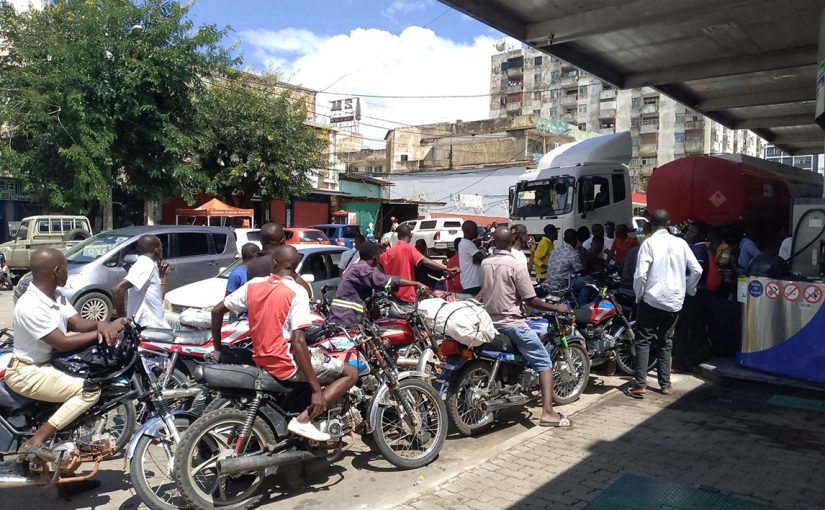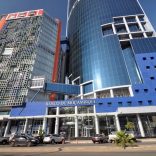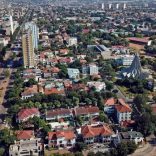Mozambique: Central bank's advances and loans to the State increased by 52% in 2024
Dollar shortage threatens bread and fuel supplies in Mozambique – Bloomberg

FILE - Nampula, Nampula province, on March 2 2025. [File photo: Rigor]
A foreign-exchange shortfall in Mozambique is already hitting fuel supplies and risks causing a scarcity of bread as well.
Local businesses have complained for months about a lack of dollars for imports to the gas-rich southeast African nation. Now it’s starting to take a more serious toll, as companies struggle to source crucial inputs like wheat, according to the Mozambique Bakers Association.
“We don’t have wheat flour and we can’t make bread without it,” Victor Miguel, head of the association, said by phone Wednesday. “What’s going to happen is we are going to not have bread available. This is really serious.”
Shortages or price rises would add to social tensions that have intensified after October’s disputed elections. At least 361 people have died in the unrest, according to the Decide Platform, a local monitoring group.
Mozambique maintains a “de facto stabilized arrangement” for its currency, the metical, according to the International Monetary Fund. And pressure has been building. By November, the local unit was overvalued by as much as 40%, with the real effective exchange rate near the highest since 2015, S&P Global Ratings said at the time.
Some fuel pumps have run dry in the center and north of the country in recent days, state-owned media including the Noticias newspaper reported this week. The government is working with the central bank and commercial lenders to overcome the problem of issuing guarantees for fuel purchases, the newspaper cited Minister of Mineral Resources and Energy Estevão Pale as saying.
João Macandja, the head of Mozambique’s state fuel imports company, Imopetro, and a finance ministry spokesman both declined to comment.
The aviation industry has also been hit hard, with a number of airlines suspending some flights to Mozambique, according to the Confederation of Economic Associations, Mozambique’s biggest business lobby group.
By February, local companies across industries had at least $373 million in unmet foreign-exchange demand, the group said after surveying its members.
The authorities could immediately boost the flow of foreign exchange from exporters by around $750 million through increasing the minimum conversion limit for export revenue to 50% from 30%, Eduardo Sengo, executive director of the group known as the CTA said in reply to emailed questions. He didn’t specify over which time period that could occur.
In the longer term, the government should also compel large exporters, who have special arrangements with government, to repatriate their revenue, he said.
The central bank last week dismissed concerns of a foreign-exchange shortage. Governor Rogerio Zandamela said the Banco de Moçambique had eased liquidity by cutting mandatory reserves for commercial lenders, and that its role was to build reserves to protect the state. The country’s FX reserves stood at $3.47 billion at the end of December, up from $3.33 billion a year earlier, according to IMF data.












Leave a Reply
Be the First to Comment!
You must be logged in to post a comment.
You must be logged in to post a comment.